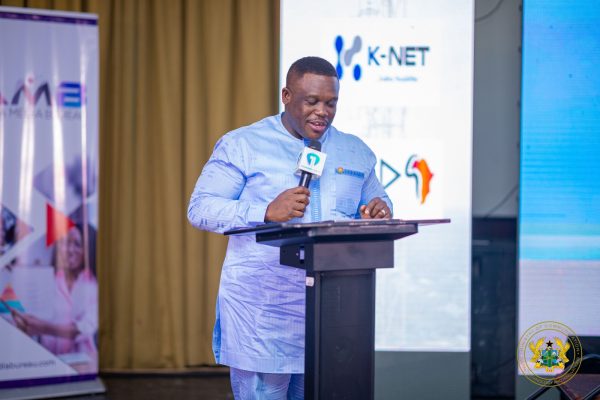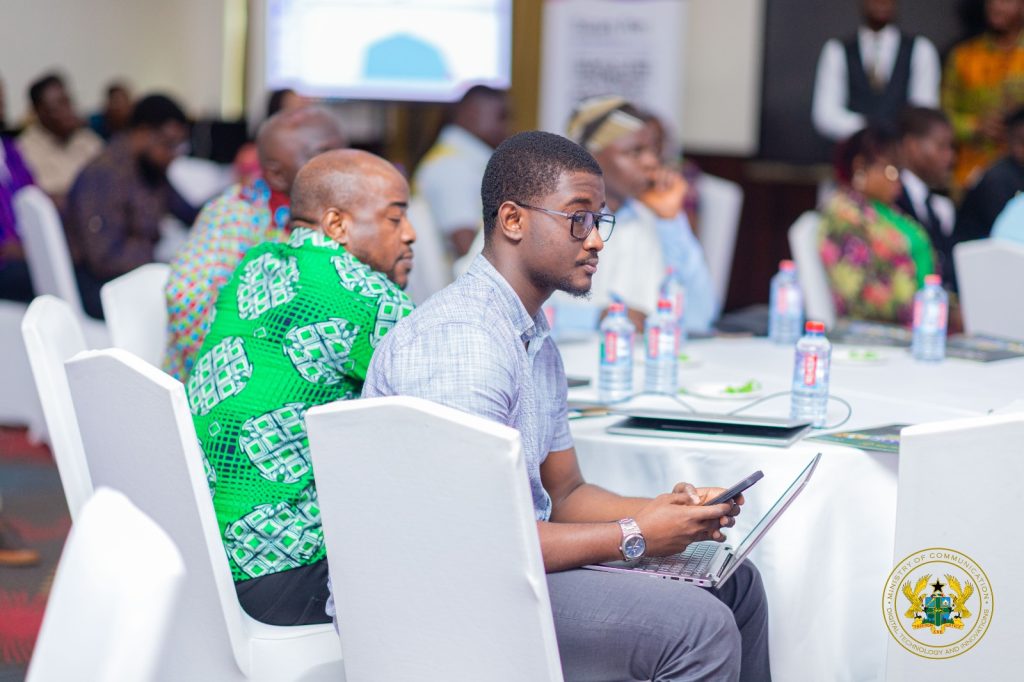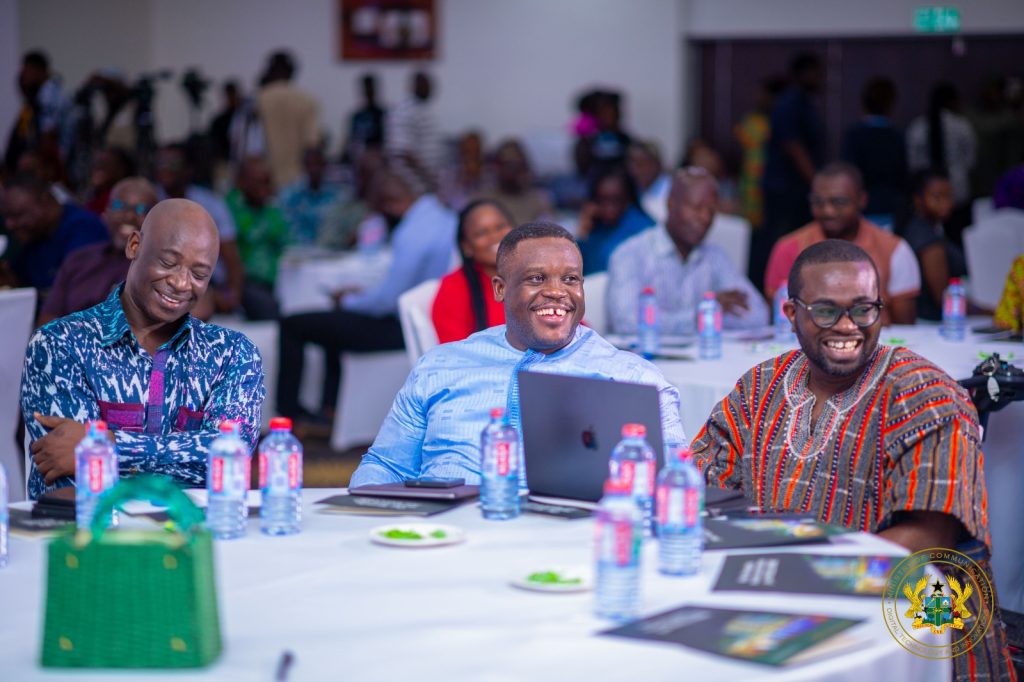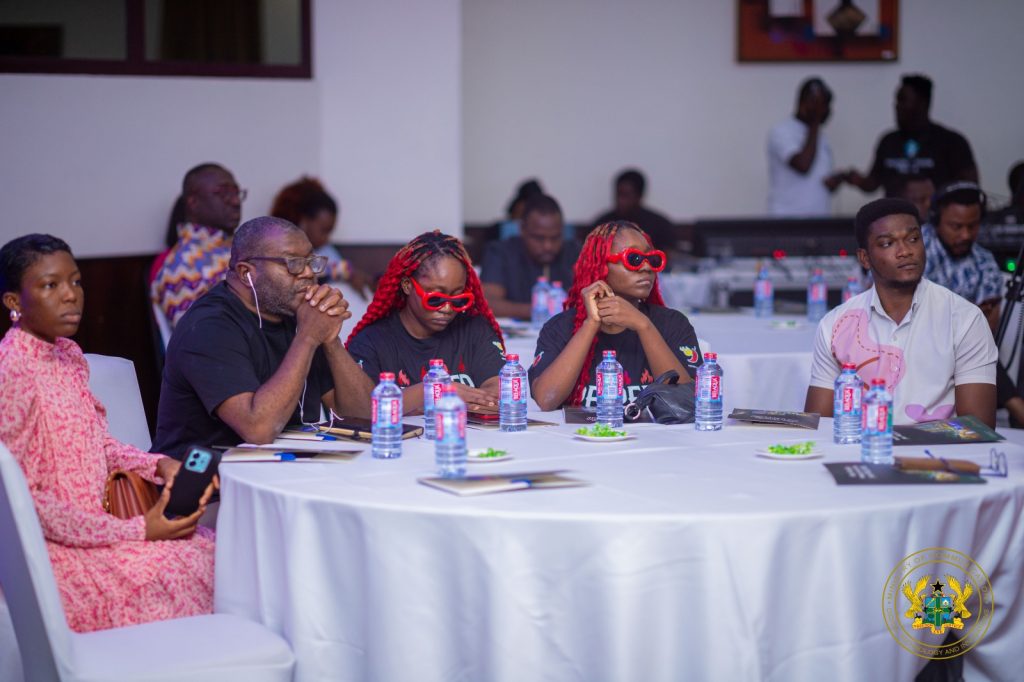
The Minister for Communication, Digital Technologies and Innovations, Hon. Samuel Nartey George (MP), has highlighted the urgent need for reforms to build a sustainable, credible, and forward-looking broadcasting industry in Ghana.
The Honorable Minister made the call today when he delivered the keynote address at the ‘Broadcasting at the Crossroads’ organised by the Africa Media Bureau (AMB), Citi/Channel One in partnership with the Ministry.
Hon. Nartey George described broadcasting as “a pillar of national cohesion, a driver of innovation, and a safeguard of democratic participation,” emphasising that the future of Ghana’s media landscape must be anchored in fairness, innovation, and resilience.
The event, held on the theme “Aligning Policy, Technology, and Global Best Practices for a Resilient Media Landscape,” brought together policymakers, regulators, media practitioners, and dignitaries, including former President John Agyekum Kufuor, to deliberate on the future of broadcasting in Ghana and across Africa.
Highlighting the current state of the industry, the Minister noted that Ghana boasts of over 700 FM stations and more than 100 television channels, making its media one of the most vibrant in Africa.
“Despite the vibrancy in numbers, questions of media quality must be taken very seriously. Some authorisation holders remain non-operational years after licensing, while others flout compliance requirements. This undermines both service delivery and public confidence,” he stressed.
On Compliance and Regulation,
the Minister revealed that the Government, working through the National Communications Authority (NCA), has stepped up enforcement of broadcasting authorisations and urged station owners to renew licences promptly, pay regulatory fees, and comply with technical and content standards.
“As your presenters hold the Government to account, please ensure that you maintain your authorisations in good standing with the regulator,” he said.
While affirming government’s respect for editorial independence, the Minister made it clear that no broadcaster—traditional or digital— was above regulation.
He condemned the airing of money-doubling schemes, exploitative religious broadcasts, and sexually explicit content, which he described as a threat to social cohesion and national morality.
DTT Sustainability
The Minister also addressed the financial sustainability of the Digital Terrestrial Television (DTT) platform, established in 2016. He disclosed that for nearly a decade, the Government has shouldered the full cost of operating the platform, while more than 45 stations using it have not paid fees due to policy and legal challenges.
“The free-ride bus is running out of fuel,” he cautioned, announcing plans to convene stakeholders to develop a cost-sharing framework that will ensure the platform’s long-term sustainability.
Embracing Technology and Global Best Practices
Turning to global trends, Hon. Nartey George urged broadcasters to embrace artificial intelligence, 5G, and hybrid content delivery platforms, while investing in digital skills to remain competitive.
He emphasised that Ghana’s regulatory frameworks must evolve in line with global best practices, balancing innovation with consumer protection.
Outlining the path ahead, the Minister proposed five priority areas to secure the future of Ghana’s broadcasting sector:
1. Strict compliance with authorisation conditions.
2. Adapting regulation to digital convergence.
3. Investment in local content and media literacy.
4. Adoption of emerging technologies.
5. Regional cooperation and benchmarking against best practices


